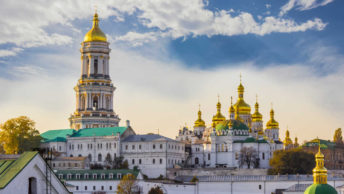The Prophet Jeremiah (23:1-6) introduces God’s new order by announcing to us an unusual title for Jesus: “The Lord our Justice.”
Now, such a title has nothing to do with Jesus’ fairness as judge or about meting out of reward or punishment for people’s good or bad behavior. It is all about Jesus executing the Father’s will completely, to the Father’s full satisfaction and glory. In other words, Jesus is the Shepherd who, alone among all other shepherds, teaches, guides, nourishes, heals, protects and saves exactly as the Father would himself.
From this reading, we realize that God was not pleased with the shepherds of old because they were after their own interest and not the sheep’s. The reference to God’s displeasure with the shepherds of ancient Israel prompts us to think about those chosen to shepherd the new People of God, the new Israel, (the Church) in the new Covenant; i.e., priests and bishops. After all, they are those charged with the lofty and demanding task of continuing Jesus’ work on earth to the end of time. They are those who, through the carrying out of their mission, will have to prove that God was correct in promising that Jesus, the righteous shoot of David, is truly “the Lord our Justice.”
By going through the Gospels we could easily list the different aspects of the formation that Jesus imparted to the Twelve and to his other disciples.
Today’s passage from the Gospel of Mark (6:30-34) focuses on a single request: to rest in the Lord in a deserted, quiet place away from the noise of a bustling world. Allow me, then, to remind you of the solemn obligation that you all have to pray that your priests and bishops may feel the need to be alone with Jesus on a regular basis. You should also encourage them to do so and allow them crucial moments of rest in the Lord and time to unwind.
All this might sound self-serving, but I am becoming humbly convinced that we, priests, need all to rest in the Lord both in prayer and in other sound ways. Furthermore, let me repeat the old cliché that “we get the priests whom we deserve.” You should all be aware that the number of shepherds (priests) is getting alarmingly smaller and smaller.
The other component of the equation of letting Jesus be truly “the Lord our Justice,” the true Shepherd of the new Israel, is the flock. We, as shepherds, should take today’s template of God’s Word and apply it to the portion of the flock assigned to our pastoral care. What stands out right away, then, is nothing short of shocking: Jesus wants us to be proactive and to apply preventive measures in shepherding. This is exactly what Jesus did as described by today’s Gospel passage.
Jesus was moved to compassion, to gut-level pity for the condition in which the Father’s flock was. We can compare this situation to a seriously injured person brought into the E.R. of the closest hospital. There is a protocol that the E.R. doctors and their staff must follow. Similarly, notice how, confronted by this pitiful situation of extreme emergency, Jesus took a single prolonged step: he fed them his Word of life (he began to teach them many things).
That’s it! If we, as shepherds of the new Israel, would spend most of our time forgiving and healing (Sacrament of Reconciliation, Eucharist, Anointing of the Sick, etc.) we would not be doing a good job according to the example and the mind of Christ. Our most urgent and prominent task is the priestly ministry of the Word, teaching and preaching. Adopting the terminology of the “Unleashing the Gospel”, we should shift from maintenance to mission.
Imagine, Paul, one of the first bishops, never mentioned any of the Sacraments that he ministered to his flock; instead, he based his entire priestly ministry on preaching the Gospel. Why is that the most urgent task of a shepherd? It is so basically for three reasons.
The negative one first: to focus on the Sacraments would be only a short-range goal and there is always the ominous danger of creating in people the impression that the Sacraments act as magic (a certain ritual is performed, prescribed words are said and, lo and behold, the “trick” is done).
A positive reason: people have to be fed God’s revelation of himself, of those aspects of the Truth that have been obscured by ignorance, by self-interest and by the sinful tendencies present in everyone. Only by an enlightened and prolonged and well-designed teaching plan will the faithful understand, live out and benefit from the Sacraments.
Another positive reason: we are all given a clear mandate to make the Body of Christ grow by preaching the Gospel to the ends of the earth.
If some are not yet convinced that Jesus’ way of correcting his people’s pitiful condition by teaching them his Word at great length is the right one, let them try to explain to a non-Catholic the reasons why we do what we do and believe what we believe about each of the Sacraments. I bet that there will be a lot of embarrassing silence, a lot of confusion, a lot of erroneous statements being made.
The Church, let me point out this too, has learned Jesus’ lesson very well. Look at the way the Eucharist, the most important action of our entire life on earth, is celebrated. Invariably, we are first fed at the table of the Word, then at the table of the Sacrament.
Therefore, let us hope in and entreat the Lord Jesus, The Lord Our Justice, for each other in earnest to make us humble, docile and very receptive of God’s Word so that we may all have the fullness of his divine Life in us.








